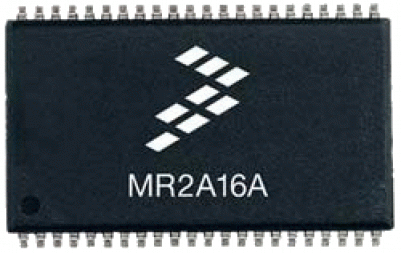Freescale MRAM can replace mid-range SRAM

 Freescale Semiconductorâs MRAM cell is four times smaller than a six transistor SRAM cell, giving it a significant potential as a replacement for mid-range performance SRAM, according to Dr Saied Tehrani, director for MRAM technology at Freescale.
Freescale Semiconductorâs MRAM cell is four times smaller than a six transistor SRAM cell, giving it a significant potential as a replacement for mid-range performance SRAM, according to Dr Saied Tehrani, director for MRAM technology at Freescale.
âThe reason why our cell is small compared to other MRAM cells is because we use one transistor and one magnetic tunnel junction (MJT) and the MJT sits on the top of the transistor,â Tehrani told Electronics Weekly at the Freescale Technology Forum in Orlando, Florida last week.
Freescaleâs 4Mbit MRAM has an access time of 35ns for both the read and the write making it competitive with mid-range SRAM. It is positioned, and priced, to be a replacement for battery-backed SRAM.
It is not fast enough to compete with high-speed SRAM which has sub-10ns access times. "It can't replace Level One cache", said Tehrani.

